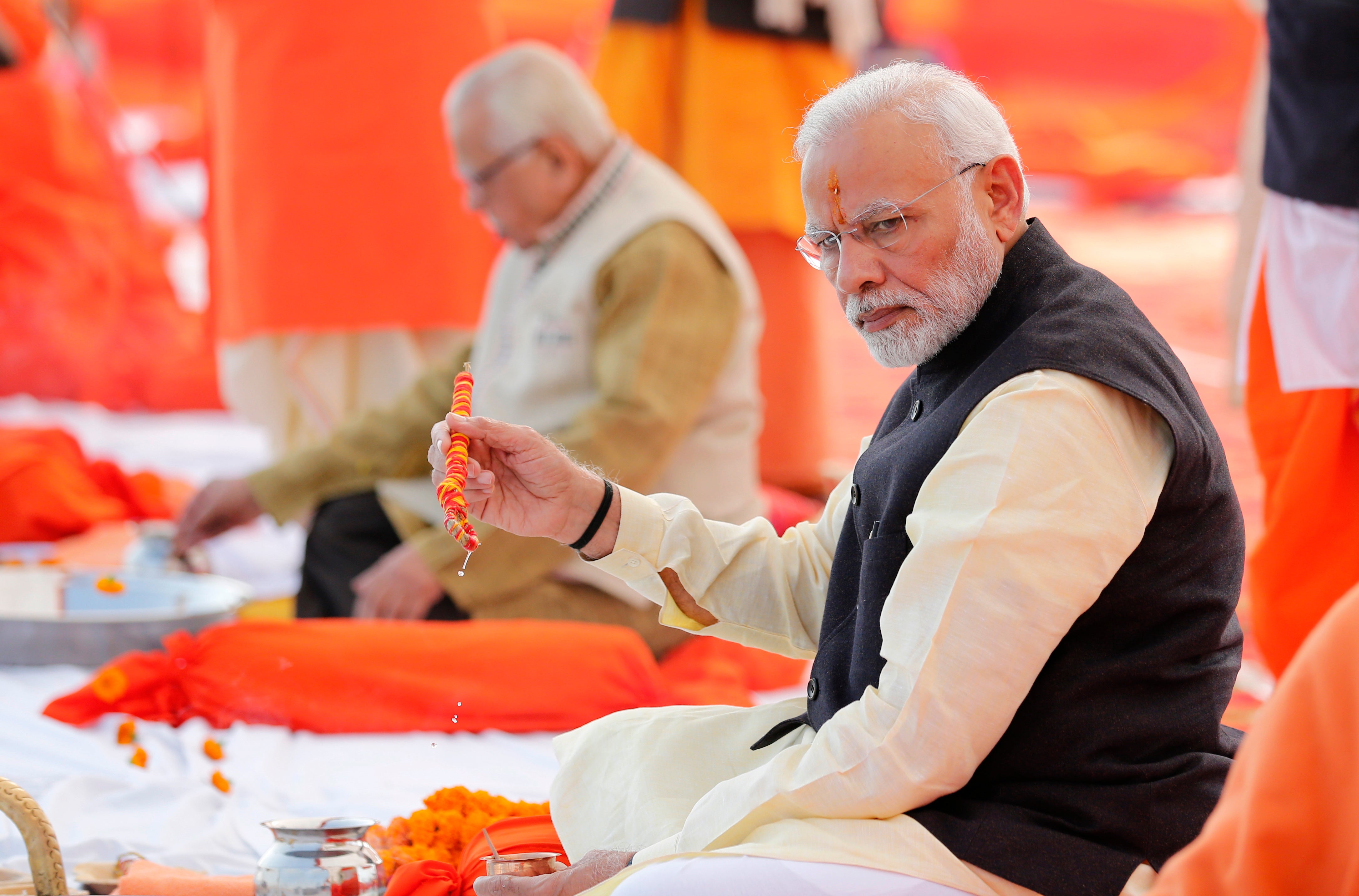Muslim nations slam India over insulting remarks about Islam
India is facing major diplomatic outrage from Muslim countries after two top officials in the ruling Hindu nationalist party made derogatory references to Islam and the Prophet

India is facing major diplomatic outrage from Muslim countries after top officials in the ruling Hindu nationalist party made derogatory references to Islam and the Prophet, drawing accusations of blasphemy across some Arab nations that have left New Delhi struggling to contain the damaging fallout.
At least five Arab nations have lodged official protests against India, and Pakistan and Afghanistan also reacted strongly Monday to the comments made by two prominent spokespeople from Prime Minister Narendra Modi’s Bharatiya Janata Party. Anger has poured out on social media, and calls for a boycott of Indian goods have surfaced in some Arab nations.
The controversial remarks follow increasing violence targeting India’s Muslim minority carried out by Hindu nationalists who have been emboldened by Modi's regular silence about such attacks since he was first elected in 2014.
Over the years, Indian Muslims have been often targeted for everything from their food and clothing style to inter-religious marriages. Watchdog groups such as Human Rights Watch and Amnesty International have warned that attacks could escalate.
Rights groups have also accused Modi’s ruling party of looking the other way and sometimes enabling hate speech against Muslims, who are 14% of India’s 1.4 billion people but still numerous enough to be the second-largest Muslim population of any nation.
Modi's party denies the accusations, but India's Muslims say attacks against them and their faith have become relentless.
The anger has been growing since last week after the two spokespeople, Nupur Sharma and Naveen Jindal, made speculative remarks that were seen as insulting Islam’s Prophet Mohammed and his wife Aisha.
Modi’s party took no action against them until Sunday when a sudden chorus of diplomatic outrage began with Qatar and Kuwait summoning their Indian ambassadors to protest. The BJP suspended Sharma and expelled Jindal and issued a rare statement saying it “strongly denounces insult of any religious personalities," a move that was welcomed by Qatar and Kuwait.
Later, Saudi Arabia and Iran also lodged complaints with India, and the Jeddha-based Organization of Islamic Cooperation, or the OIC, said the remarks came in a “context of intensifying hatred and abuse toward Islam in India and systematic practices against Muslims.”
New Delhi has made no comment so far over protests lodged by Muslim nations, but India’s Foreign Ministry on Monday rejected comments by the OIC as “unwarranted” and “narrow-minded." On Sunday, India's embassies in Qatar and Doha released a statement saying the views expressed against the Prophet and Islam were not that of the Indian government but made by “fringe elements.” Both statements said that strong action has already been taken against those who made the derogatory remarks.
The criticism from Muslim countries, however, was severe, indicating that insulting Prophet Mohammad was a red line.
Qatar’s Foreign Ministry said it expected a “public apology” from the Indian government and Kuwait warned that if the comments go unpunished, India would see “an increase of extremism and hatred." The Grand Mufti of the sultanate of Oman described the “obscene rudeness” of Modi’s party toward Islam as a form of “war.” And Riyadh said the comments were “insulting” and called for “respect for beliefs and religions.”
The remarks made by Sharma during a TV program in India and Jindal in a tweet risk damaging India’s ties with Arab nations.
India maintains strong relations with the wealthy sheikhdoms of Qatar and Kuwait, which rely on millions of migrant workers from India and elsewhere in South Asia to serve their tiny local populations and drive the machinery of daily life. India also depends on oil-rich Gulf Arab states to power its energy-thirsty economy.
The remarks also led to anger in India's archrival and neighbor Pakistan and in Afghanistan.
On Monday, Pakistan’s Foreign Ministry summoned an Indian diplomat and conveyed Islamabad’s “strong condemnation," a day after Prime Minister Shahbaz Sharif said the comments were “hurtful” and “India under Modi is trampling religious freedoms & persecuting Muslims.” The Islamic Emirate of Afghanistan said the Indian government should not allow “such fanatics to insult ...Islam and provoke the feelings of Muslims.”
Anti-Muslim sentiments and attacks have risen across India under Modi. Last week, U.S. Secretary of State Antony Blinken said India was seeing “rising attacks on people and places of worship,” eliciting a response from New Delhi which called the comments “ill-informed.”
More recently, religious tensions have escalated after some Hindu groups went to a local court in northern Varanasi city to seek permission to pray at a 17th century mosque, claiming that it was built by demolishing a temple. Critics say these tensions have been further exacerbated by India’s TV channel anchors during raucous debates.
___
Associated Press writers Isabel DeBre and Jon Gambrell in Dubai and Munir Ahmad and Rahim Faiez in Islamabad contributed to this report.
Bookmark popover
Removed from bookmarks